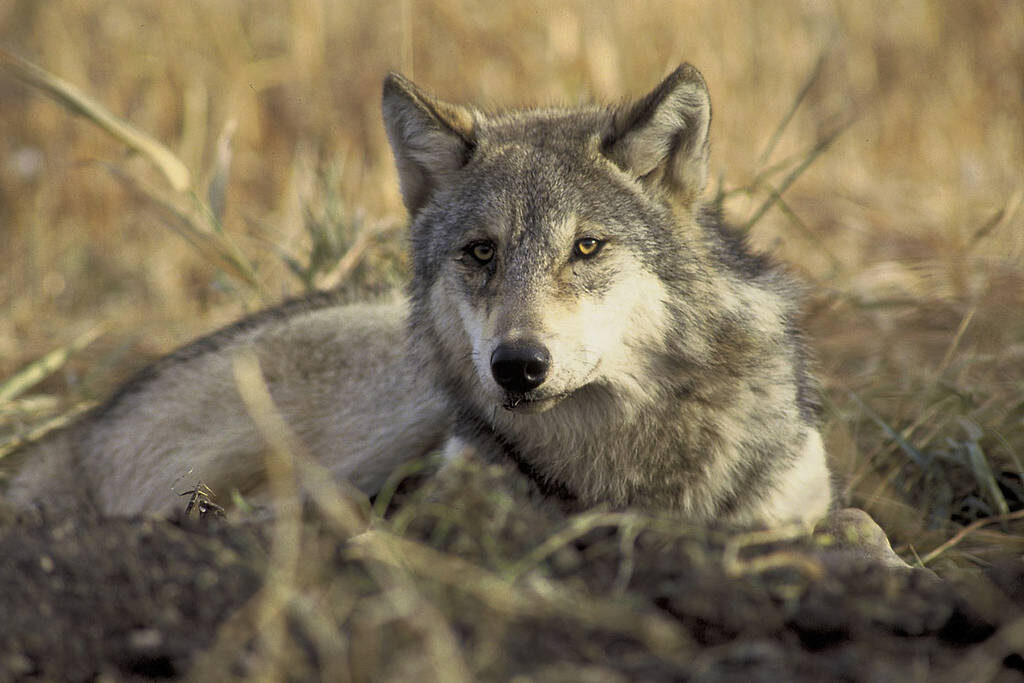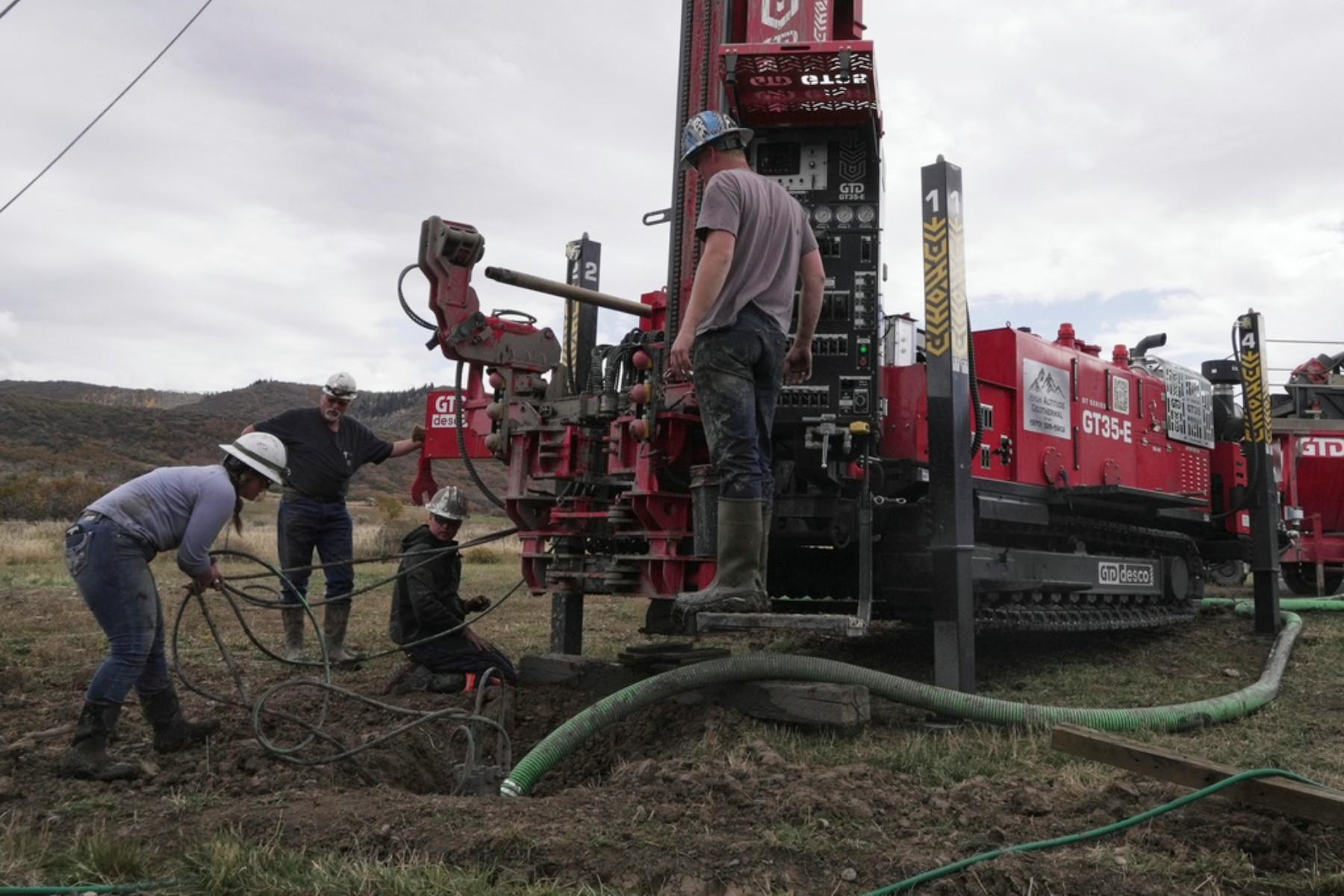
Colorado is back on the wolf market — and it’s looking to Washington state to supply the carnivores for its next round of reintroductions, planned for this winter.
Gov. Jared Polis recently spoke to Washington Gov. Bob Furguson about obtaining wolves, according to Staci Lehman, a spokesperson with the Washington Department of Fish and Wildlife. The state’s wildlife commission plans to hold an initial discussion about the possibility at its next scheduled meetings on Nov. 13-15, Lehman said.
Washington’s decision could shape the future of Colorado’s voter-approved wolf restoration effort. The project remains deeply unpopular in ranching communities, but wildlife advocates say it shows that individual states can successfully manage predators known to improve overall ecosystem health.
Since 2023, the state has released 25 wolves west of the Continental Divide over two winters. Even though some have bred to form packs, the state’s wolf management plan calls for at least one more year of releases to secure a “self-sustaining population” of at least 150 wolves.
It’s now unclear whether the Trump administration will let the state follow through. Luke Perkins, a spokesperson with Colorado Parks and Wildlife, said the state had already signed an agreement to secure another batch of wolves from British Columbia, which supplied 15 wolves to boost the state's recovery effort last winter. That plan, however, was scrapped after the Trump administration told Colorado last month it legally couldn’t import additional wolves across the U.S.-Canada border.
The federal government offered Colorado few options to obtain additional wolves. In a letter sent on October 10, U.S. Fish and Wildlife Director Brian Nesvik argued the special permit allowing Colorado to manage wolves — known as a 10(j) rule — only lets the state relocate wolves from the northern Rocky Mountains, where wolves no longer count as a federally endangered species. The area covers Idaho, Montana, Wyoming, as well as parts of northern Utah, eastern Oregon and eastern Washington.
In a written statement, Shelby Wieman, a spokesperson for Gov. Jared Polis, said Colorado is holding “discussions at some level” about obtaining wolves with all five states noted in the letter. Wieman also confirmed Polis has directly spoken to Washington’s governor about the idea.
“The state is committed to fulfilling the will of Colorado voters and is evaluating all options to support this year’s gray wolf releases,” Wieman said. “CPW has continued conversations with several potential sources in order to maximize Colorado’s options.”
Why Oregon and Washington are the most likely sources
Colorado has already tried to obtain wolves from the northern Rocky Mountains. That history indicates few officials are ready and willing to help with the controversial restoration effort.
The state wolf plan cites Idaho, Montana and Oregon as ideal sources since the northern Rocky Mountains offer similar landscapes and prey species as Colorado. In 2023, CPW asked all three states for wolves. All refused, citing concerns that the carnivores would eventually migrate across the Rocky Mountains and disrupt efforts to manage their own wolf populations.
Some liberal leaders in the Pacific Northwest were less concerned. Washington, however, declined to supply wolves since Colorado's statutory deadline to put “paws on the ground” by the end of 2023 didn’t fit with its own wolf management schedule.
Oregon eventually allowed Colorado to capture its first 10 wolves, later released in Summit and Grand counties. A spokesperson from the Oregon Division and Fish and Wildlife declined to say whether the state would once again supply wolves.
In 2024, Colorado struck a deal with the Confederated Tribes of the Colville Nation in eastern Washington for another 15 wolves. The Native American nation later backed out, saying the state hadn’t done enough to manage wolves jointly with the Southern Ute Tribe in southwest Colorado.
The state signed an agreement with the Southern Utes to coordinate wolf management efforts later that year. A spokesperson with the Colville Nation didn’t immediately respond to questions from CPR News asking if it could supply wolves this winter.
Some wolf opponents prefer Canadian wolves
State Sen. Dylan Roberts, D-Frisco, isn’t a fan of Colorado's reintroduction effort.
In the last special legislative session, Roberts sponsored a bill to force the state to pause its wolf releases for one year. Gov. Polis opposed the bill, but ultimately signed a compromise allowing upcoming releases to continue so long as the costs aren’t covered by Colorado’s general fund. The state must instead rely on other revenue sources, such as sales of Born to be Wild conservation license plates.
Roberts, however, wasn’t glad the federal government threw a wrench into Colorado’s plans. By blocking wolves from Canada, he fears the state will end up with canine newcomers more accustomed to living near livestock. The wolves from British Columbia, by contrast, mainly preyed on caribou.
“If we’re going to have wolves, it’d be better if they came from British Columbia than from packs in Washington and Oregon that have killed livestock before,” Roberts said.
Repeating the saga of Colorado’s Copper Creek Pack is a chief concern for Sen. Roberts. The family group established itself in 2024 after two wolves relocated sired pups. The male wolf came from a pack in Oregon with a known history of preying on livestock. Colorado Parks and Wildlife eventually recaptured the pack after it repeatedly killed cattle near its original den site. The family group has continued to create issues for local ranchers after wildlife managers rereleased it in Pitkin County last winter.
Former U.S. Rep. Greg Lopez, a Republican candidate for Colorado governor, is still glad the federal government intervened to stop Colorado’s plans to source wolves from Canada. If it forces the state to return to Washington or Oregon, he said CPW has a straightforward option: follow its own wolf management plan and avoid wolves with a chronic and well-known history of preying on livestock.
“The permit is specific: you’re not to capture wolves known for depredation,” Lopez said.
Editor’s note: This article has been updated to clarify funding for wolf releases, and types of wolves released.









